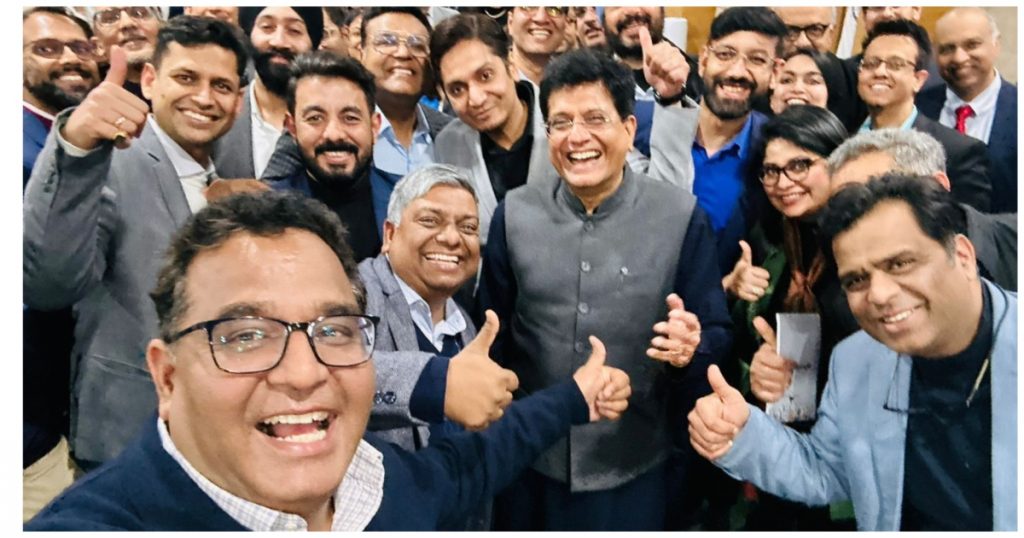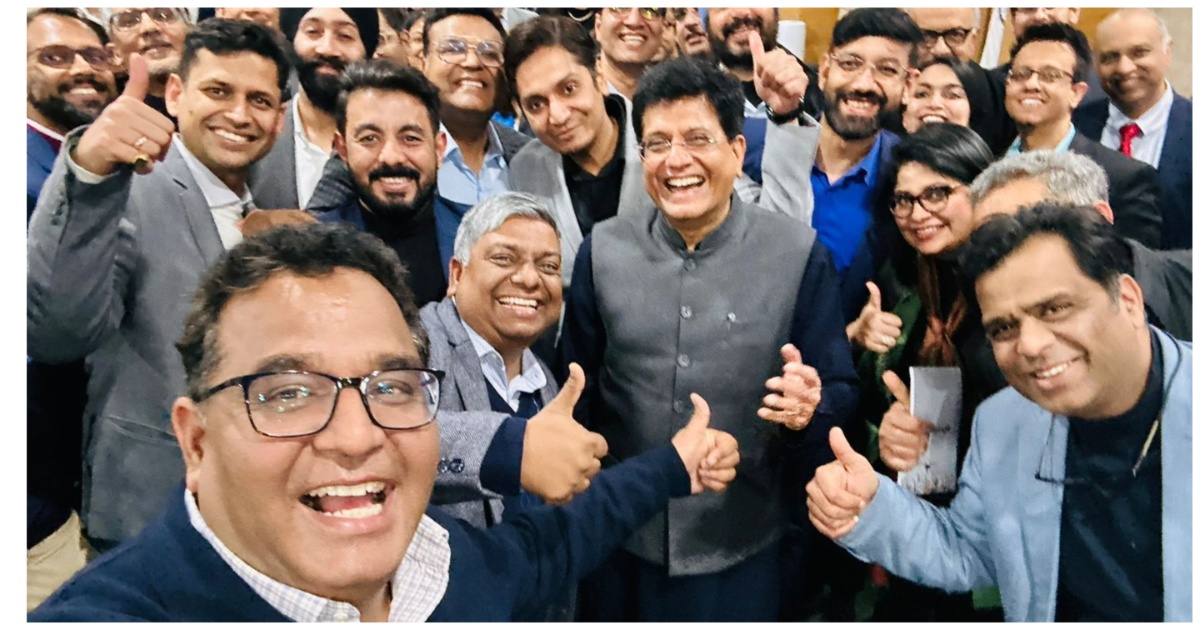India’s startup ecosystem has gained in prominence over the last decade, and that’s also brought with it increased support and interaction from the government.
As many as 54 Indian unicorn founders met Union Commerce Minister Piyush Goyal yesterday and discussed a range of issues. The meeting lasted around 4 hours, and discussions centered around ease of doing business, ESOPs, tax issues, and attracting more domestic capital. Given how India has around a 100 unicorn startups, around half of them were represented at the event.

The event saw the participation of Paytm founder Vijay Shekhar Sharma, EaseMyTrip founder Rikant Pitti, Droom founder Sandeep Aggarwal, Zomato founder Deepinder Goel, BoAT co-founder Aman Gupta and representatives from Flipkart, Phonepe, Swiggy, OYO, Zerodha and others.
“The meeting started at 8 pm and ended at 11 pm,” said Droom founder Sandeep Aggarwal. “Piyush sir was ready to go for another hour with same level of energy and enthusiasm. He was open, transparent, candid, and hungry for feedback and suggestions from the founders. No sense of entitlement but sense of collaboration and encouragement by him. Truly a changing face of India,” he added.
“An idea was floated by the Minister to make a club of unicorns or association of startups, which was a good idea and we will try to make a club of unicorns or association of startups,” said Paytm founder Vijay Shekhar Sharma. “With the association of startups, we can also come up with many solutions, like connecting with bankers and investors to get access to capital,” he added.
“We discussed domestic capital versus international capital and how to deepen the startup ecosystem in the country,” said EaseMyTrip’s Ritikant Pitti. “We discussed the challenges we are facing. All the founders of Unicorns have made suggestions to the minister,” he added.
The Indian government has built this relationship with startups over the last decade. In 2016, the government had launched the Startup India initiative with attendance from the the top names in the Indian startup community, and even international players like Uber founder Travis Kalanick and Softbank’s Masayoshi Son. The event had the theme “we unobstacle”, hinting at how the government planned to make it easier for startups to operate in the country. The government had also announced a slew of measures for startups including tax breaks, ease in filing patents, and lowered compliance procedures. It had also announced a Fund of Funds, which would provide financing to established investment funds to in turn invest in Indian startups.
Much water has passed under the bridge since then, and the Indian startup ecosystem has grown by leaps and bounds in the period. From less than 10 unicorns at the time, India’s startup ecosystem had 108 unicorns at last count. These companies provide all manner of goods and services, and employ lakhs of people across the country. And with top ministers from the government still meeting regularly with startup founders, it appears that the government has the back of India’s startup ecosystem as it looks to further grow in prominence — and influence — in the coming years.
